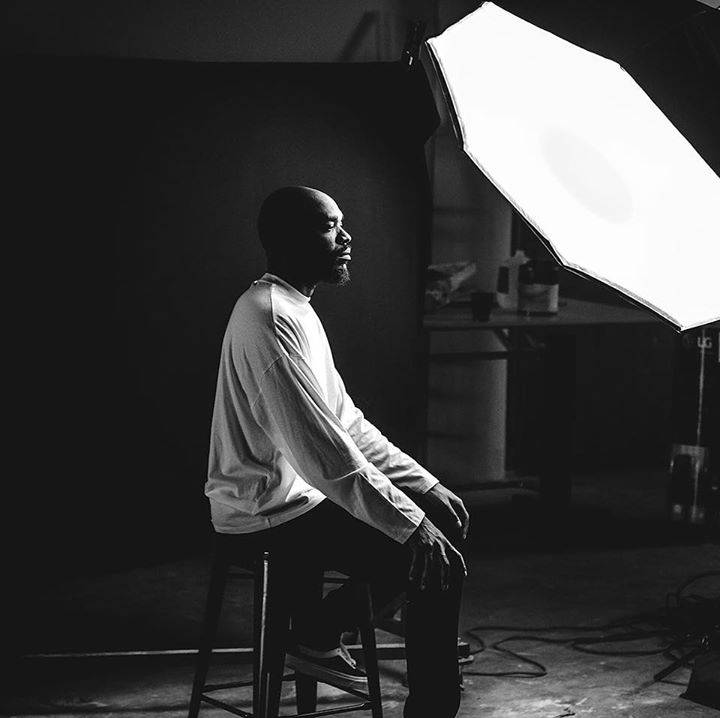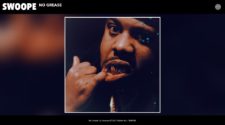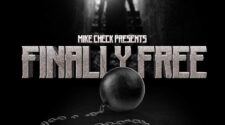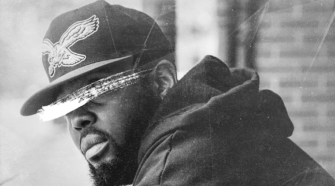Hailing from the UK, S.O. is one of the most prominent and important emcees across the pond. Aside from around a decade in the game, he keeps pushing the envelope with thought-provoking Christ-centric music. His upcoming project Augustine’s Legacy continues and hits hard with one of its first singles “White Jesus.” Rapzilla’s Luc DiMarzio spoke to S.O. about the meaning of the album and direction of music along with the buttons, he’s pushing with “White Jesus” the single. This is part one.
“White Jesus,” that’s a little…I think it’s going to be pushing back on some of American Christianity’s thoughts. Can you speak a little bit to it?
Yeah, absolutely. I do want to say that I think the image of Jesus is a bigger thing than black and white. I don’t know if that makes sense. It’s like… when you go up to my Hispanic brothers and sisters who are adorning a white Jesus image in their homes, on some of their churches. Jesus is not white, and that’s a concern for not only black people. Jesus is not white, and I think that’s a concern for all people.
I think it’s also a concern to say that it’s a misrepresentation of Christ, and Christians are okay with it. I think the misconception that everyone knows that Jesus is not white.
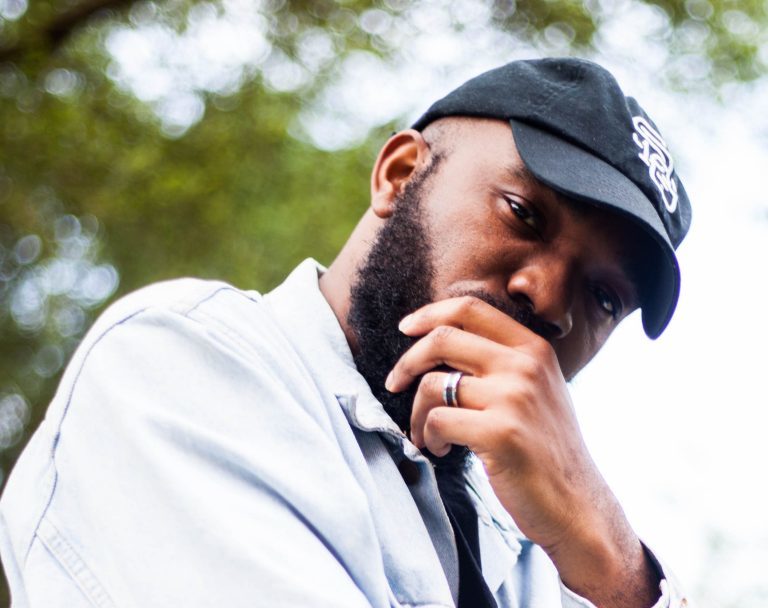
The truth of the matter is, a lot of people are not aware that the image that has been popularized by Western society is not the real image of Jesus. For me, when I was writing this song, I wasn’t writing it only as, “Hey, man, Jesus is not white. He’s black.” I’m writing it because of the historical aspect of a white Jesus, because of the racial and the bigotry, like those things. That’s the context I’m coming from.
It actually came from conversations with Hebrew Israelites. People from that sort of thinking, especially a young boy that I was talking to, and he was saying, “Oh, what’s this white man’s religion that you’re following?” Especially where I’m coming from, from Nigeria, from London, and even some of the conversations I’ve been having in the States, are a lot of people are wrestling with that. A lot of people are wrestling with (the idea that) I cannot be a Christian and quote-unquote, “be black.” How can I be Christian and be black? How can I be black and be Christian, if Christianity is a white man’s religion?
For some people, they hear and they think, “Oh, he just hates white people.” Well, no. That’s not what the song is about. It’s really about me saying that this image we have of Jesus actually does more bad than good.
It actually doesn’t help people to see Jesus for what he really is. They see this white, pale, handsome guy that looks like the dominant race. And that’s not true. So I should care about any misrepresentation of Christ, as a Christian. I should care about if his words are misrepresented. If I said that Jesus said that he is Away, A truth, and A life, there’d be uproar. They’d go “my gosh, how can you?” “What is this universalist view of Jesus that you’re portraying?” But… let someone say Jesus is white, or let someone not even say, but I don’t know if I’m okay with that, let it just be in our churches.
Watch “White Jesus” by S.O. Below:
Yeah, there are those pictures of him everywhere.
Yeah. Let that just be a thing, and oh, we’re okay with that. That we shouldn’t be okay with that. And to me, there’s a deeper issue, too. There’s a broader issue of color in America, and in the UK. I think it’s all around the world. There are black and brown people being ostracized. There are people of color being put in cages, being sold into slavery, and the dominant race isn’t really saying anything, generally speaking.
So you have white evangelicals who are okay with people being placed in cages and being deported because they have no connection to those people. There’s no empathy towards them. But what if I flipped it on its head, and said, “Imagine if it was your savior that was in those cages. How would you feel then?”
If Jesus is a person of color, and looked more like the people in those cages, and looked more like the people who are being detained and deported back home, who’ve been in America for over 20 years, people would have a different perspective. People would treat them differently. We would say something else other than “Send them home. They came here illegally.”
For me, there are deeper issues that always lead to not white. Who? All right. Let’s talk about it. Let’s talk about how black people weren’t allowed to be baptized in white churches. For a long time. The reason why there’s a “black church,” quote-unquote, is because white people didn’t let us in their churches.
And so who are they adorning? Who was on their walls? It wasn’t black Jesus, wasn’t brown Jesus, it wasn’t no Jesus. It was white Jesus. Slave owners and slave masters when they would omit certain things from the Bible, and so on and so forth, and have an image of white Jesus in their homes, and the slave would see that and think, “Oh, my master looks like that. The white person is God. Therefore, I must obey.”
I could talk for days on this, I think that a white Jesus has done more harm than good.
Absolutely.
So that’s why I wrote the song. I’m ready for anything that comes from it. And the video, I don’t even know if you’ve seen the video?
No, I haven’t seen the video. I heard the song though.
The video is…everything that I’m saying in the song, there’s a visual for it.
So you’ve got Bigfoot on a unicorn, at the end of a rainbow.
I literally have Bigfoot on a unicorn – I have that. I also have a burning cross, with a man in a KKK costume.
So the line went, “That white Jesus that you worship is a racist.” White Jesus came through. White Jesus killed my people, and the slaves turn around and say that’s our Savior, and I have a lady in there depicting a slave, and Christ was not a hippie picking lilies in a field. We literally went and found a hippie. We found a hippie, we plucked some lilies, and we shot that scene.
Wow, man. Can’t wait.
Yeah, I think it’s important to visualize these things.
It’s powerful what you’re doing. You’re dropping some truth here. The song is amazing, on its own anyway. It sounds so good. Sonically, and you stay on point through the whole thing. The point you’re making, it needs to be heard. I really love that track.
I appreciate it, bro.
The album is called Augustine’s Legacy. Can you explain what that means to you?

So Augustine’s Legacy, my dad’s first name is Augustine.
He passed away when I was 16, 17. He would’ve been 60 this year. Also, last year, October, my wife and I had a daughter. Her name is Sade Rose. This year I had posted something on Instagram, and I had a hashtag, #AugustinesSon. My wife, being the genius that she is, did the same thing with a different hashtag, #AugustinesLegacy. When she said that, I was like, “Yo, I really like that. That’s the title of the album.” And really, to me now, it was about passing on what he’s taught me, to my daughter. I am a product of his legacy, and now my child is a product of my legacy.
As I’m getting older, I pray I’m getting wiser, and I’m really on, “Yo, let me pass something for my children, pass something for the people that are around me. Let me leave a lasting legacy that goes beyond me because I think we live in this microwave, give-me-now, it’s-all-about-me, selfish era.”
Once you have a child, all of that’s got to go. You start to think, “What am I going to leave for her?” Not just monetarily, or physically, but spiritually. How can I invest in her spiritually? How can I make sure that if something happens to me, she’s good? She knows who saves her.
So that’s what that title is, it’s just about me saying, “Listen, we’re all leaving a legacy.” We are all when something happens to us when we die because someone’s going to remember us. They’re going to remember us in a positive way, or they’re going to remember us in a negative way.
I chose Augustine’s Legacy, because one, I didn’t have a title for my album, and two, it fits where I’m at in life now.
Yeah, and I can tell because the lyrics that are showing up, like one of them is talking about how you’re not supposed to be comfortable, you got the boast thing, you got some versatility with your singing. You’re kind of all-encompassing where you’re at in your life right now. It makes sense. I’m like, “Yeah, this all falls right in line.”
Yeah, absolutely. And I think the album is a combination of all my sounds. So 2017, 2018, I was just releasing loosies. The ones that you get where I’m just rapping on it, I’m just going in. Another one is like Afrobeat. Another one is where I’m singing on everything. I’m like, “Yo, let me just bring all of that into a body of work and give it to the people.”
The singing thing, it gets kind of tiring waiting for people, so I just sing it myself.
I’m excited about the album, what it’s going to do. How it’s going to encourage people and the doors that potentially it will open.
I’ve been following you for quite a while. A couple of years ago, 2015, you put out some different sounding stuff, at least for me that I’ve heard, when you started singing, you started bringing in some more versatility to what you do.
So now, I really feel like this is you really coming into your own. This album is everything that I would now expect from S.O. I feel like you have grown up. I feel like you have gotten wiser. You’re also showing, “Hey, I can hang with the best.” You’re showing you can sing a little bit. You got some big beats. You can just come at it, just spit – got some stuff with OnBeat, on here.
OnBeat co-produced “Intro.” He also did “Boast.” I think for me, now it’s…put a beat on. Let’s just create. Let’s create. The album took a year to make.
“White Jesus” actually got made on August 23, 2018.
And it’s coming out August 16, 2019. There are certain songs on there, as I’ve got older, I start to appreciate my African culture a lot more. So that’s why you hear the Afrobeat element. Stuff like that. Although I say I’m S.O. the Kid, I am technically S.O. the Man, now.
Yeah, that’s good.
It’s really just about the songs, and my audience, and really not worrying about anything that’s happening on the sidelines, or with other artists. Just kind of running my own race. Collaborating with people that want to collaborate with me, and I want to collaborate with them, and it’s mutual. So not forcing stuff.
This album, I was very intentional. I’m not going to chase big, big collaborations. I’ve never really chased big, big collaborations. They always just fell in my lap, and they just happened. I’m not going to force it.
I’m going to be organic, I’m going to create the music. And I haven’t released an album in a while, even though I’ve released a lot of music. It doesn’t feel like I haven’t been releasing content. So I was like, “Yo, I need to give people all of me as possible.” Let me give all of me that I can.
2,948 total views, 0 views today
